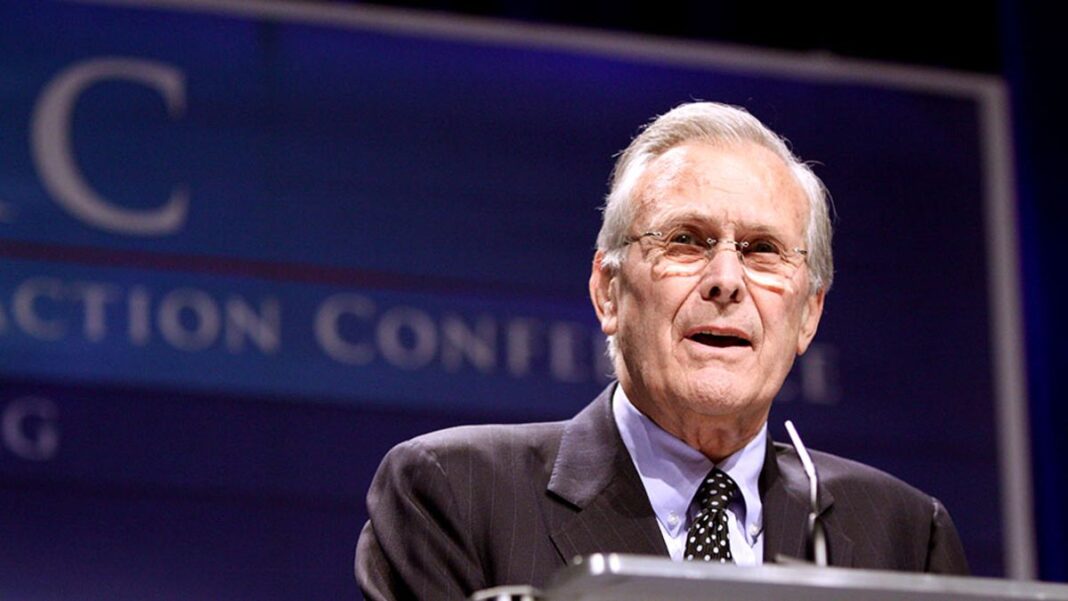
The Center for Security Policy mourns the passing this week of Donald Rumsfeld, truly one of America’s most remarkable men.
A longtime friend of the Center for Security Policy, the Center was proud to honor Rumsfeld in 1998 with its prestigious “Keeper of the Flame” Award. He was fond of observing that his long-life (he died at age 88) spanned roughly one-third of the history of our country – a history to which he contributed profoundly.
“Rummy” will be particularly remembered for his extensive and distinguished service to our country: in the uniform of a naval aviator; in the Congress to which he was elected four times; as NATO ambassador; and in such key executive branch positions as White House Chief of Staff and twice as Secretary of Defense.
Don Rumsfeld was equally impressive during his time as a successful business leader. Notably, as G.D. Searle’s CEO, he introduced the artificial sweetener aspartame, which revolutionized the food industry and transformed the diets of countless consumers world-wide.
Drawing on such public and private sector life experiences, the Secretary developed Rumsfeld’s Rules – a handbook filled with wry insights and practical prescriptions, informed by hard experience and the help of his friends. His travails – and the country’s – following the brilliant success of the campaign to liberate Iraq affirmed one such rule: “It is easier to get into something than get out of it.”
Another of Donald Rumsfeld’s most trenchant maxims was widely condemned when he uttered it, but is as true today as ever: “You go to war with the Army you have—not the Army you might want or wish to have at a later time.”
While many American leaders indulged in the delusion that China would be, at worst, an economic competitor, Donald Rumsfeld regarded it as a potentially formidable adversary – one that would be prepared, in due course, to threaten U.S. allies and interests in the Western Pacific and far beyond.
That understanding – and his clear-eyed assessment of Russian ambitions – informed his seminal work leading two congressionally mandated commissions, one concerning ballistic missile defense and the other outer space.
Under Don Rumsfeld’s leadership, the former warned that missile threats were proliferating and intensifying. His commission report established the basis for President George W. Bush’s subsequent, courageous decisions to withdraw from the obsolete Anti-Ballistic Missile Treaty and begin deploying national missile defenses.
For its part, the second Rumsfeld Commission identified in 2001 the real possibility of a “space Pearl Harbor,” one that would neutralize the various military and commercial satellites there that are essential to national and economic security. President Trump’s decision to establish a Space Force to protect U.S. equities in the High Frontier and counter hostile actors seeking to use that domain against us is, arguably, a response – at last – to Donald Rumsfeld’s prescient warnings.
We will never forget Rummy’s feisty championing of America’s national security interests and his witty repartee with journalists, legislators and others who challenged him. And we will always cherish the memory of his friendship and leadership. Rest in peace, Donald Rumsfeld.






